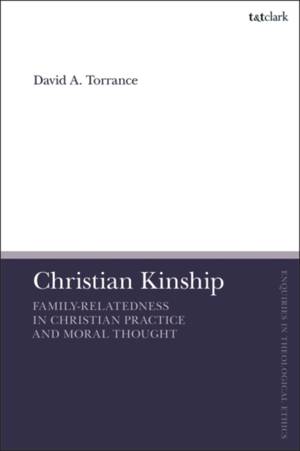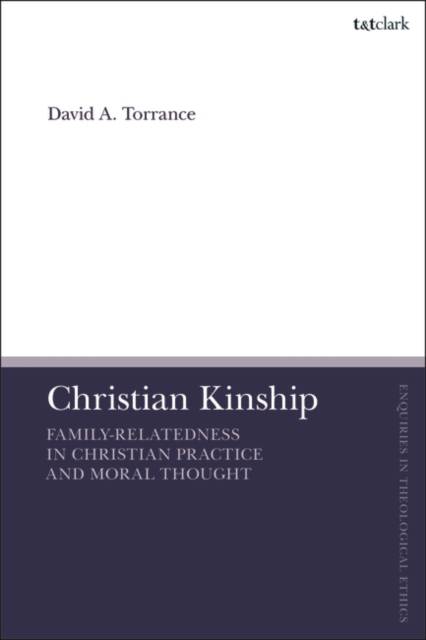
- Afhalen na 1 uur in een winkel met voorraad
- Gratis thuislevering in België vanaf € 30
- Ruim aanbod met 7 miljoen producten
- Afhalen na 1 uur in een winkel met voorraad
- Gratis thuislevering in België vanaf € 30
- Ruim aanbod met 7 miljoen producten
Zoeken
€ 67,95
+ 135 punten
Uitvoering
Omschrijving
Ideas of kinship play a significant role in structuring everyday life, and yet kinship has been neglected in Christian ethics, moral philosophy and bioethics. Attention has been paid in these disciplines to the ethics of 'family, ' but with little regard to the evidence that kinship varies widely from culture-to-culture, suggesting that it is, in fact, culturally constructed.
Surveying notions of shared substance (e.g. blood ties), house, gender and personhood, as theorised and practiced in the Christian tradition, Torrance critiques the special privileging of the 'blood tie'. In the place of European and American cultural assumptions to the contrary, it is kinship in Christ that is presented as the basis of a truly Christian account for social ties. Torrance also aims to stimulate the moral imagination to consider Christian kinship might be lived out in miniature, in everyday life.
Surveying notions of shared substance (e.g. blood ties), house, gender and personhood, as theorised and practiced in the Christian tradition, Torrance critiques the special privileging of the 'blood tie'. In the place of European and American cultural assumptions to the contrary, it is kinship in Christ that is presented as the basis of a truly Christian account for social ties. Torrance also aims to stimulate the moral imagination to consider Christian kinship might be lived out in miniature, in everyday life.
Specificaties
Betrokkenen
- Auteur(s):
- Uitgeverij:
Inhoud
- Aantal bladzijden:
- 216
- Taal:
- Engels
- Reeks:
Eigenschappen
- Productcode (EAN):
- 9780567699848
- Verschijningsdatum:
- 27/06/2024
- Uitvoering:
- Paperback
- Formaat:
- Trade paperback (VS)
- Afmetingen:
- 156 mm x 234 mm
- Gewicht:
- 303 g

Alleen bij Standaard Boekhandel
+ 135 punten op je klantenkaart van Standaard Boekhandel
Beoordelingen
We publiceren alleen reviews die voldoen aan de voorwaarden voor reviews. Bekijk onze voorwaarden voor reviews.











